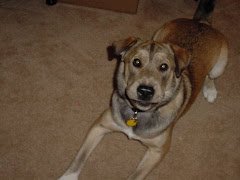I'm sure many of you have read about a condition often seen in the 1800's called "neurasthenia" that many suspect may have been dysautonomia. It's an interesting idea that dysautonomia is not as new as many like to think.
This article from the Heart Disease Blog at about.com has a sympathetic view by a doctor that I thoroughly appreciate. I wish more doctors thought like this!
By Richard N. Fogoros, M.D., About.com Guide to Heart Disease
Yesterday's Neurasthenia, Today's Dysautonomia
Friday April 30, 2010
In the 19th century, there used to be a condition called neurasthenia. People (usually women) would find themselves suddenly unable to function due to a host of inexplicable symptoms, often including fatigue, weakness, strange pains, dizziness and passing out. Doctors attributed the condition to a "weak nervous system," or neurasthenia. These women were often confined to their beds, where they would either recover or, eventually, die. And while nobody knew what caused this condition, at least everyone - doctors and laymen alike - took it seriously.
Today, many doctors shake their heads in wonder at stories like this. How could a condition such as neurasthenia simply disappear?
The answer: It hasn't. And while patients today who experience these same symptoms aren't given that quaint old diagnosis, often they don't get any diagnosis at all. They are all too often written off as having "anxiety," or some other form of, well, weakness of character, that absolves the doctor of having to try to do anything about their problem, or even to think about it very much.
At least in the 19th century, patients with dysautonomia were taken seriously, and were treated by their doctors with respect and sympathy.
Read here about dysautonomia, how to tell if you might have it, and what can be done about it.
---
Well said Dr. Fogoros!



